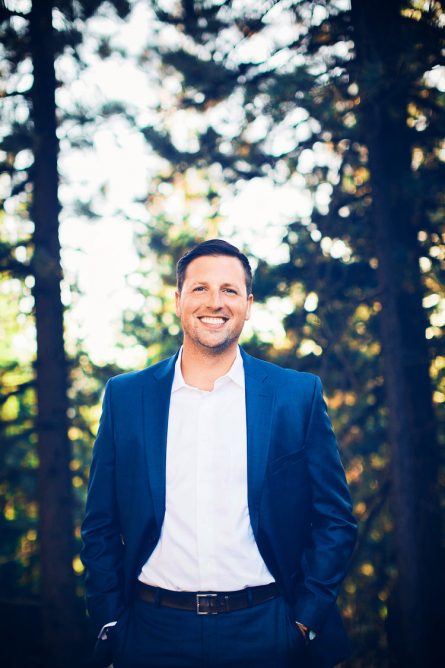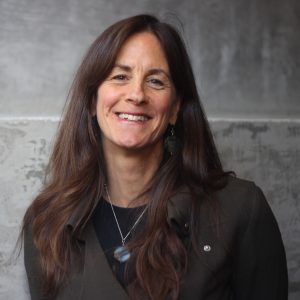Each month, the MA in Sustainable Design program invites a special guest for our Town Hall series where students, faculty, and alumni get to meet and chat with a leader in the field of sustainability or sustainable design.
This month’s guest was Zach Weismann, founder of the MAG Impact Collective. Below are (paraphrased) excerpts from our conversation.
I met Zach at the Sustainable Brands conference earlier this year. I was really interested in learning more about his current enterprise, the MAG Impact Collective, and then sharing it with the students, faculty, and alumni of the MASD program.
When I looked through his LinkedIn profile, I learned that he started out as a tax accountant with one of the Big Four firms, but then quickly moved into a series of interesting volunteer and non-profit work before founding a couple of different organizations, including the MAG Impact Collective.
Please tell us about your journey and what you’re doing now.
My parents were both accountants, so I got my undergrad and graduate degrees in accounting and finance. Right out of school, I got a job as an international tax consultant at PwC. I thought I had really made it. But then I read An Inconvenient Truth and was a pivotal moment for me. It pulled back the curtain on what was really going on out there. After exactly one year at PwC I quit and started doing volunteer work.
I started out with an NGO in Peru, helping community members test their own water quality. While there, I saw a lot of empty schools that NGOs had built. It really opened my eyes about how important empowerment is. The idea is captured in the quote,
“Give a man a fish, and you feed him for a day. Teach a man to fish, and you feed him for a lifetime”.
Back in the States, I learned how to use media for social impact — in this case to save elephants by eliminating the demand for ivory. At that non-profit, I started as an intern and left as the Communications Director. Later, while at Sustainable Brands, I found myself focusing on international business development. When my mom died of cancer, it really opened my eyes about the problems of healthcare, so I co-founded CancerQ.
After some less than successful work experiences, I reflected on what didn’t go well and why. I wanted to work on my own, but also wanted to work with a team. I wanted to design a system. I eventually founded MAG, which stands for Magnify, Accelerate, Impact (and also my mom’s initials). The idea was to create a network of curated, vetted independents that could form nimble teams, all with a focus on social impact. It’s been going really well!
How do you build ownership of social impact projects, to avoid the abandoned schools that you mentioned earlier?
I learned that you need to listen. Hold community events, similar to focus groups. Take a Human Centered Design approach — shift from telling-and-teaching to listening-and-empowering. You need to meet people where they are, and learn why they are where they are. You need to understand where they are coming from. Then rather than giving them solutions, empower them to create and execute their own solutions.
How is working with private sector different than working with the non-profit sector with social impact projects?
We’ve been lucky enough to work with organizations as big as Google and as small as a local landscaping business. With the private sector, there is typically a quicker path to budget, but you need to navigate their needs and understand how they are framing the problem. They might be focusing on marketing or design or PR or partnerships. Again, you need to understand where they are and then create a team that understands that angle.
When clients describe a problem, is it usually the case that they are not stating what the real problem is, perhaps because they don’t understand it?
Sometimes. Sometimes they want something tangible — like a logo. Other times the real need is hidden behind what they are asking for. To figure that out, we need to ask questions, find out what they’ve already tried and tested. It’s easy for a consultant to think they have all the answers, but it’s better to allow the time and space to get in there and do a discovery phase.
It sounds like you’re using a lot of design tools even when you’re not designing.
Yes! Amazing things have happened when we’ve brought one of our designers into projects that are not specifically design project. And our clients are beginning to understand things like Human Centered Design and Design Sprints.
I’ve learned that if you’re doing good work — like social impact — it is really important to tell that story. Designers can tell that story in a different way. They can bring the new tools that are needed to solve the new problems that we are facing today, especially in the area of social impact.
Some of our students are working on design for behavior change. Are you doing this?
Yes! I highly recommend the book Switch: How to Change Things When Change Is Hard by the Heath brothers. They talk about shaping the path ahead, rather than trying to steer. It’s about designing systems to make things happen.
Do you have any last bits of advice for our students?
Think about your narrative, your story. Every encounter is unique. You should never use the same cover letter or even resume twice.
Also, slow down. Take your time to figure things out. Use the process of elimination to figure out what you don’t want to do. Life throws you curveballs. Keep your mind open.
Thank you Zach for sharing your time and insights with MCAD’s MASD community!
[image courtesy of MAG Impact Collective]
If you want to become part of our global and diverse community of students, faculty, alumni, and sustainability leaders working together to push the sustainability envelope forward, we invite you to explore our fully online MA in Sustainable Design program.

